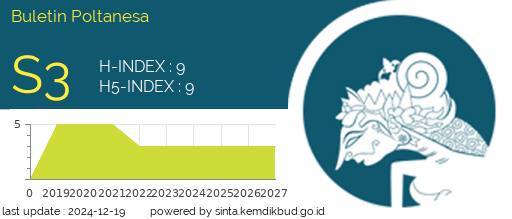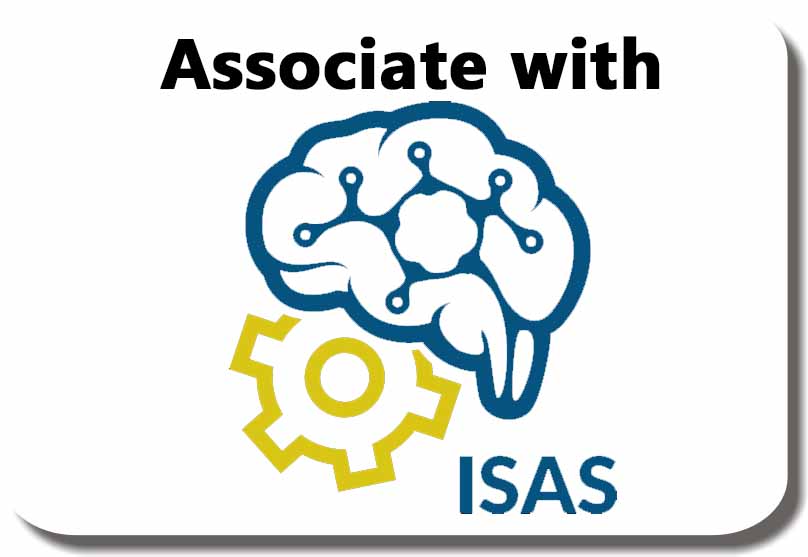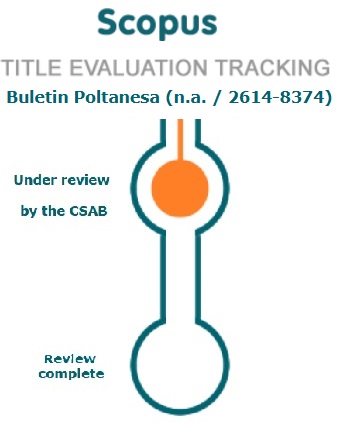Academic Reading Challenges in Higher Education: Identifying Barriers and Strategic Responses among EFL Students
DOI:
https://doi.org/10.51967/tanesa.v26i1.3288Keywords:
Academic reading, reading comprehension, EFL students, reading strategies, higher educationAbstract
Academic reading proficiency is a fundamental determinant of success in higher education, particularly for English as a Foreign Language (EFL) students. This study examined the challenges faced by English Education Study Program students at Pattimura University when reading academic articles. Employing a mixed-methods approach with a convergent parallel design, the research integrated quantitative survey data (n=39) with qualitative insights from focus group discussions (n=8) to examine reading difficulties, contributing factors, and strategic responses. Findings revealed a hierarchical pattern of challenges, with linguistic difficulties (M=3.31) representing the most significant barrier, followed by cognitive processing (M=2.99) and strategic processing challenges (M=2.93). Complex sentence structures (M=3.28) emerged as the dominant linguistic challenge, surpassing specialized terminology (M=3.18) and unfamiliar vocabulary (M=3.21). Reader factors (M=3.11), particularly motivational sustainability with longer texts (M=3.21), exerted slightly greater influence than contextual factors (M=2.91). Students employed diverse strategies to navigate these challenges, including pre-reading orientation, vocabulary support mechanisms, and emerging technology-assisted approaches, though collaborative reading remained underutilized. Identifying "strategic inertia"—students' reluctance to experiment with new approaches—represents a novel contribution to understanding reading strategy development in academic contexts. These findings suggest that practical approaches to developing academic reading skills must simultaneously address multiple dimensions, including linguistic features, cognitive processes, strategic approaches, and affective factors.
References
Alamri, A., & Ahmed, S. (2021). The Effectiveness Strategies for Students with Reading Challenges: New Frontiers. İlköğretim Online, 20(3). https://doi.org/10.17051/ilkonline.2021.03.07
Al-Jarrah, H., & Ismail, N. S. B. (2018). Reading Comprehension Difficulties Among EFL Learners in Higher Learning Institutions. International Journal of English Linguistics, 8(7), 32. https://doi.org/10.5539/ijel.v8n7p32
Amini, M., Zahabi, A., Amini, D., & Hosseini, S. S. A. (2020). A Review of Reading Strategies and Models in Learning and Teaching of English as a Foreign Language. AJELP: The Asian Journal of English Language and Pedagogy, 8(2), 14–26. https://doi.org/10.37134/ajelp.vol8.2.2.2020
Belouiza, O., Er-Rechydy, A., & Koumachi, B. (2024). Prior knowledge Activation through the use of Effective Reading Strategies. International Journal of English Literature and Social Sciences, 9(3), 389–394. https://doi.org/10.22161/ijels.93.49
Cabrera-Pommiez, M., Lara-Inostroza, F., & Puga-Larraín, J. (2021). Assessing academic reading in students entering Higher Education. Ocnos. Revista de Estudios Sobre Lectura, 20(3). https://doi.org/10.18239/ocnos_2021.20.3.2614
Creswell, J. W., & Creswell, J. D. (2023). Research Design Qualitative, Quantitative, and Mixed Methods Approaches Sixth Edition (6th ed.). Sage Publications.
Dardjito, H., Rolls, N., Setiawan, A., & Sumekto, D. R. (2023). Challenges in reading English academic texts for non-English major students of an Indonesian university. Studies in English Language and Education, 10(3), 1290–1308. https://doi.org/10.24815/siele.v10i3.29067
Duke, N. K., & Cartwright, K. B. (2021). The Science of Reading Progresses: Communicating Advances Beyond the Simple View of Reading. Reading Research Quarterly, 56(S1). https://doi.org/10.1002/rrq.411
Garcia, G. D. V. (2023). Executive Functions and English Reading Comprehension among Filipino Students. Reading Psychology, 44(4), 388–411. https://doi.org/10.1080/02702711.2022.2156950
Ghani, N., Jamian, A. R., & Abdul Jobar, N. (2022). Environmental Impact of Reading Literacy Development. Malaysian Journal of Social Sciences and Humanities (MJSSH), 7(4), e001425. https://doi.org/10.47405/mjssh.v7i4.1425
Gough, P. B., & Tunmer, W. E. (1986). Decoding, Reading, and Reading Disability. Remedial and Special Education, 7(1), 6–10. https://doi.org/10.1177/074193258600700104
Howard-Gosse, A., Bergey, B. W., & Deacon, S. H. (2024). The Reading Challenges, Strategies, and Habits of University Students With a History of Reading Difficulties and Their Relations to Academic Achievement. Journal of Learning Disabilities, 57(2), 91–105. https://doi.org/10.1177/00222194231190678
Indriyani, G., & Pertiwi, I. S. (2021). Exploring the EFL Students’ Reading Strategies Used on Reading Academic Articles. PANYONARA: Journal of English Education, 3(2), 71–79. https://doi.org/10.19105/panyonara.v3i2.5008
Lawrence, J. F., Knoph, R., McIlraith, A., Kulesz, P. A., & Francis, D. J. (2022). Reading Comprehension and Academic Vocabulary: Exploring Relations of Item Features and Reading Proficiency. Reading Research Quarterly, 57(2), 669–690. https://doi.org/10.1002/rrq.434
Magyar, A., Habók, A., & Molnár, G. (2022). Exploring the Role of English as a Foreign Language Receptive Skills and Learning Strategy Usage in the Ability to Acquire and Apply Knowledge at the Beginning of Higher Education. Frontiers in Psychology, 13, 808546. https://doi.org/10.3389/fpsyg.2022.808546
McNeil, L. (2012). Extending the compensatory model of second language reading. System, 40(1), 64–76. https://doi.org/10.1016/j.system.2012.01.011
Miyamoto, A., Pfost, M., & Artelt, C. (2019). The Relationship Between Intrinsic Motivation and Reading Comprehension: Mediating Effects of Reading Amount and Metacognitive Knowledge of Strategy Use. Scientific Studies of Reading, 23(6), 445–460. https://doi.org/10.1080/10888438.2019.1602836
Muryani, R. N., & Yunus, M. (2024). Students’ Digital Vocabulary Learning: Experiences, Barriers, and Adaptive Strategies Exploration. English Review: Journal of English Education, 12(1), 31–42. https://doi.org/10.25134/erjee.v12i1.9328
Naeem, M., Ozuem, W., Howell, K., & Ranfagni, S. (2023). A Step-by-Step Process of Thematic Analysis to Develop a Conceptual Model in Qualitative Research. International Journal of Qualitative Methods, 22, 16094069231205789. https://doi.org/10.1177/16094069231205789
Patty, J. (2023). Enhancing Reading Comprehension through the Cooperative Integrated Reading and Composition (CIRC) Strategy. Research Horizon, 3(4), 362–377.
Pinzolits, R. F. J. (2023). AI in academia: An overview of selected tools and their areas of application. MAP Education and Humanities, 4(1), 37–50. https://doi.org/10.53880/2744-2373.2023.4.37
Rhead, A. (2019). The trouble with academic reading: Exposing hidden threshold concepts through academic reading retreats. Journal of Learning Development in Higher Education, 15. https://doi.org/10.47408/jldhe.v0i15.502
Siregar, N. R., Ilham, M., & M., M. (2020). The Influence of Survey, Question, Read, Recite, Review Method Toward Reading Comprehension Ability Mediated by Working Memory. JPI (Jurnal Pendidikan Indonesia), 9(1), 85. https://doi.org/10.23887/jpi-undiksha.v9i1.23101
Snow, C. E. (2018). Simple and Not-So-Simple Views of Reading. Remedial and Special Education, 39(5), 313–316. https://doi.org/10.1177/0741932518770288
Stanovich, K. E. (1980). Toward an Interactive-Compensatory Model of Individual Differences in the Development of Reading Fluency. Reading Research Quarterly, 16(1), 32. https://doi.org/10.2307/747348
Talwar, A., Magliano, J. P., Higgs, K., Santuzzi, A., Tonks, S., O’Reilly, T., & Sabatini, J. (2023). Early Academic Success in College: Examining the Contributions of Reading Literacy Skills, Metacognitive Reading Strategies, and Reading Motivation. Journal of College Reading and Learning, 53(1), 58–87. https://doi.org/10.1080/10790195.2022.2137069
Uccelli, P., Galloway, E. P., Barr, C. D., Meneses, A., & Dobbs, C. L. (2015). Beyond Vocabulary: Exploring Cross-Disciplinary Academic-Language Proficiency and Its Association With Reading Comprehension. Reading Research Quarterly, 50(3), 337–356. https://doi.org/10.1002/rrq.104
Urrutia, M., Mariángel, S., Pino, E. J., Guevara, P., Torres-Ocampo, K., Troncoso-Seguel, M., Bustos, C., & Marrero, H. (2024). Impact of Affective and Cognitive Variables on University Student Reading Comprehension. Education Sciences, 14(6), 554. https://doi.org/10.3390/educsci14060554
Van Amelsvoort, M. (2024). Annotation for Developing Strategic Readers. JALT Postconference Publication, 2023(1), 65–70. https://doi.org/10.37546/JALTPCP2023-08
Yung, C., Chin, P., Ban, T., & Em, S. (2024). Using different techniques and strategies to improve English reading skills: A review of literature. Cambodian Journal of Educational and Social Sciences (CJESS), 1(1), 37–48. https://doi.org/10.69496/cjess.v1i1.13
Downloads
Published
How to Cite
Issue
Section
License
Copyright (c) 2025 Buletin Poltanesa

This work is licensed under a Creative Commons Attribution-ShareAlike 4.0 International License.
The copyright of this article is transferred to Buletin Poltanesa and Politeknik Pertanian Negeri Samarinda, when the article is accepted for publication. the authors transfer all and all rights into and to paper including but not limited to all copyrights in the Buletin Poltanesa. The author represents and warrants that the original is the original and that he/she is the author of this paper unless the material is clearly identified as the original source, with notification of the permission of the copyright owner if necessary.
A Copyright permission is obtained for material published elsewhere and who require permission for this reproduction. Furthermore, I / We hereby transfer the unlimited publication rights of the above paper to Poltanesa. Copyright transfer includes exclusive rights to reproduce and distribute articles, including reprints, translations, photographic reproductions, microforms, electronic forms (offline, online), or other similar reproductions.
The author's mark is appropriate for and accepts responsibility for releasing this material on behalf of any and all coauthor. This Agreement shall be signed by at least one author who has obtained the consent of the co-author (s) if applicable. After the submission of this agreement is signed by the author concerned, the amendment of the author or in the order of the author listed shall not be accepted.








